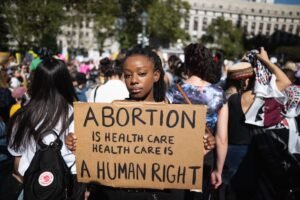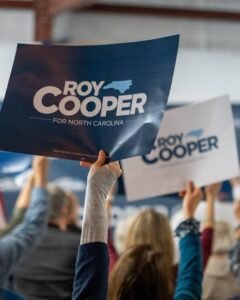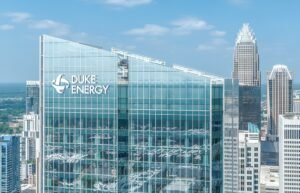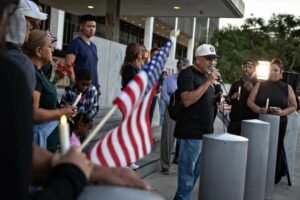DURHAM, N.C. — Mayor Leonardo Williams delivered his second State of the City address Tuesday evening at the Carolina Theatre, highlighting a range of initiatives aimed at improving public safety, education, housing, and economic development. Speaking to a full house of community members, local leaders, and public officials, Williams laid out what he believes is Durham’s path forward, emphasizing resilience, investment, and action over bureaucracy.
Public Safety: Expanding Community-Based Response
Williams opened with a focus on public safety, particularly the role of Durham’s Holistic Empathetic Assistive Response Team (HEART), a crisis response program that provides mental health intervention as an alternative to law enforcement. Since its inception two years ago, HEART has responded to more than 25,000 calls, a milestone Williams touted as a national model.
“Cities across the country are calling right here to Durham and our local leaders as they develop their own empathetic response programs,” Williams stated.
However, Durham continues to grapple with crime rates. A recent report from the Durham Police Department noted that violent crime has seen a 5% decline year-over-year, though concerns remain regarding gun violence and youth involvement in crime. Williams acknowledged the challenges but reaffirmed his administration’s commitment to intervention programs rather than additional studies.
“Durham doesn’t need another 30-page study to tell us what we already know,” Williams said. “We need action. We need results.”
Investing in Youth and Economic Development
Youth engagement remains a key pillar of the mayor’s agenda. Williams highlighted the Bull City Future Fund, a partnership between the City of Durham, United Way of the Greater Triangle, and the Triangle Community Foundation. The initiative, aimed at expanding opportunities for at-risk youth, has raised half of its $1 million goal to fund youth-serving organizations.
Additionally, Williams discussed the city’s $10 million investment in revitalizing the Fayetteville Street corridor, a historically Black neighborhood in Hayti that has long suffered from economic decline. The redevelopment efforts, he emphasized, are designed to honor Hayti’s cultural legacy while creating new opportunities for residents.
Education: Strengthening Durham’s Pipeline
As a former educator, Williams has prioritized education policy throughout his tenure. On Tuesday, he pointed to new partnerships between Durham Public Schools, Duke University, North Carolina Central University, and Durham Technical Community College that aim to provide students with pathways to careers in healthcare, technology, and artificial intelligence.
Among the most significant initiatives is the Durham Early College of Health Sciences, set to open in fall 2025, and a collaboration between NCCU and Google to establish the nation’s first AI institute at a Historically Black College or University (HBCU).
“Partnerships [and] collaboration have been the key ingredients to our success in developing a pipeline for our young scholars to dream, develop, and achieve in Durham,” Williams said.
Housing: Addressing Durham’s Homelessness Crisis
Housing affordability has been a growing concern in Durham, particularly as home prices and rental costs continue to rise. According to the City of Durham’s Community Development Department, there were 415 unhoused individuals in the city in 2024, a number that underscores the ongoing housing crisis.
Williams cited the Forever Home, Durham initiative, which aims to create new rental units and renovate existing spaces. Since its launch, the program has placed over 1,000 previously unhoused community members into permanent housing.
While these efforts mark progress, housing advocates argue that more needs to be done, particularly in ensuring affordable housing remains available for long-term residents.
Durham’s “Next Renaissance”
Williams also promoted Durham Next, a newly established nonprofit focused on community-driven development projects. While details remain limited, he described it as an effort to bring together public and private sector leaders to pursue transformative programs.
“We can’t be afraid to dream big. We can’t be afraid to do big things,” Williams said. “It’s time for Durham’s next renaissance.”
His remarks come as Durham continues to attract national recognition. The city has been named one of the most “dynamic places to live” in the country, a distinction Williams attributed to its cultural resilience.
Honoring Durham’s Legacy
The evening’s event, held during Black History Month, featured a proclamation designating February 13 as “Chester Jenkins Day”, honoring Durham’s first Black mayor. Jenkins, who served from 1989 to 1991, was a key figure in advancing civic and social progress in the city. His widow was present to receive a bouquet of flowers from Williams.
Additionally, local artists The Southern Brothas and Rivals Barbershop owner Khedron Mims (Hezter Boi) performed original songs celebrating Durham, including “Durham is Dope” and “Bull City Anthem.”
Looking Ahead
Williams closed with a familiar rallying cry: “Durham is dope.” While his speech was met with applause, the city still faces significant challenges in crime, housing, and economic disparity. His administration’s success will be measured not just in promises but in the tangible outcomes of the initiatives he has set in motion.
For ongoing coverage of local government, policy developments, and community initiatives, stay informed with The Bull City Citizen—Durham’s trusted source for news.












